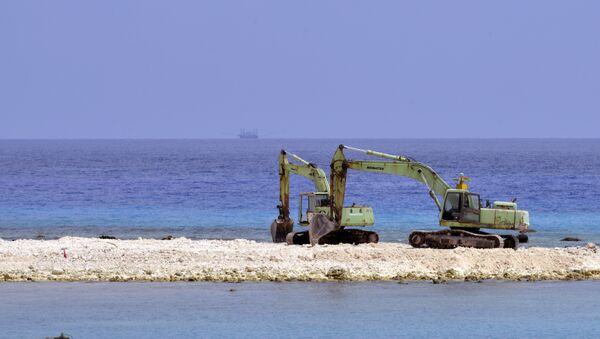Matters of disagreement in the South China Sea should be resolved by a code of conduct created by regional parties, as opposed to US arbitration, Cui Tiankai, China’s ambassador to the US, said in Washington on Monday.
According to Stars and Stripes, China’s aim is to clear up disputes with other island claimants, among them Malaysia, Brunei, Vietnam and Taiwan, in a “friendly and effective way,” Cui said.
Foreign ministers of the members of the Association of Southeast Asian Nations (ASEAN) and China reached accord on a framework for the code of conduct in early August. “ASEAN and China have just agreed to a framework for that code,” Carl Thayer, emeritus professor at the University of New South Wales, told Sputnik News on August 11.
“They set out a timetable, that they will approve it and further it in August and commence consultations in November to draw up the code of conduct,” Thayer explained.
Cui’s focus on the code of conduct can be interpreted as “sending a message as Trump is starting his trip to Asia,” Brad Glosserman, a senior adviser for the Center for Strategic and International Studies’ Pacific Forum, told Stripes.
Regarding obstacles for completing the code, Thayer said, “the legally binding nature is another step, and at present, China seems to be pressing the foreign ministers to sign the document, and that would be non-legally binding, but some of the ASEAN members are saying that the national legislatures such as China’s National People’s Congress should ratify it with the United Nations.”
ASEAN and China need to clarify “dispute management mechanisms” in the code to address incidents such as two ships crashing into one another, or if one party starts new construction on an island, both of which have become pressing concerns in 2017.



